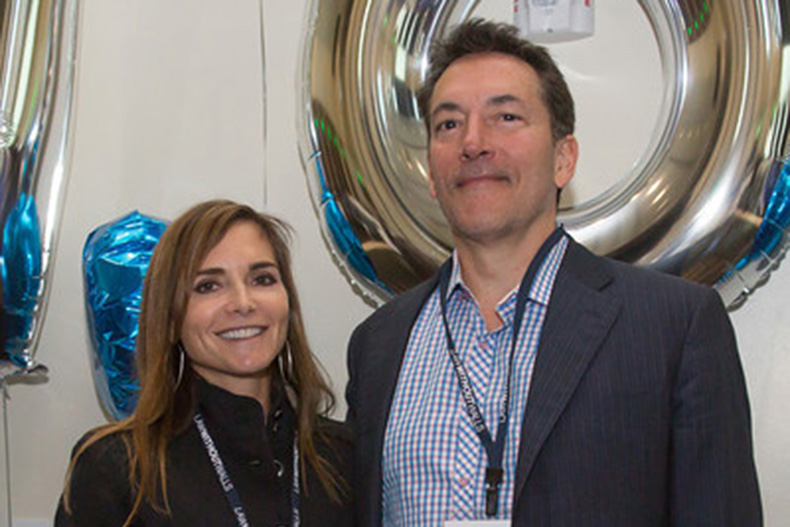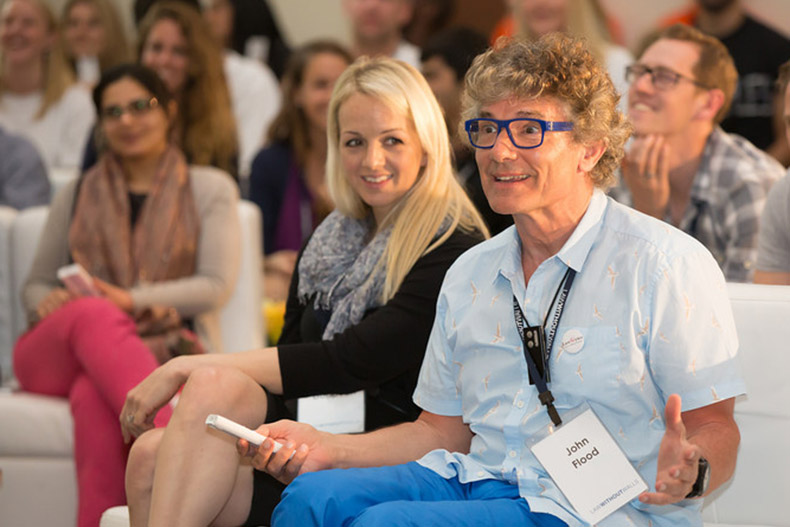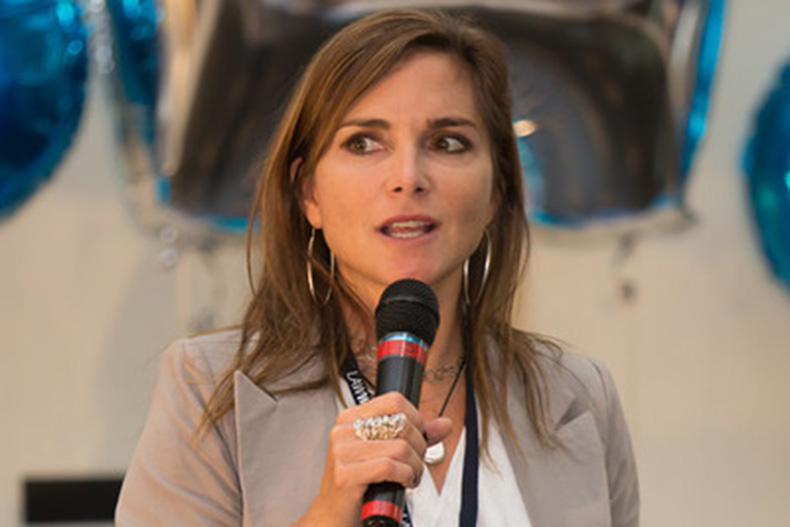
LawWithoutWalls (LWOW), devised and led by Miami Law Professor Michele DeStefano aims to develop in its students the skills necessary to provide effective professional services in today’s cross-cultural marketplace through a blended instructional model combining in-person and virtual components.
Over a three-month period, LWOW teams up students from over 25 law and business schools across 14 countries around the world with academic, entrepreneur, and lawyer mentors to develop implementable business solutions to problems in legal education or practice.
How has LWOW grown over the years?
“The first year, we started with 23 students from six schools in three countries. This fourth year, we more than tripled – to 70 students, (50 in LWOW and 20 in LWOW X) from 26 schools in 14 countries. Our community now includes over 400 people. We have grown in scope and substance expanding from just law schools to including business schools as well.
This year we grew our format from part virtual format to an all-virtual pilot: LWOW X which attempts to accomplish the same goals and hone the same skills but participants do not meet in person. Instead, all community-wide interactions are conducted entirely on line via Adobe Connect which enables over 100 people to connect, chat, and project their videos in real time from individual locations. Additionally, LWOW X hosts LWOW Locals in various locations that enable pockets of LWOWers to gather together in person to debate hot issues in legal practice and education. These Locals are live streamed to the broader community.”
One of LWOW’s cornerstones is teamwork. How does that work in practice?
“The LWOW kickoff is an in-person event at a participating school in Europe during which the community engages in interactive exercises designed to foster idea generation, teamwork, entrepreneurship, self-assessment, and networking skills. For the next three months, the teams then work virtually and the entire community meets weekly in real-time with video and chat to debate hot issues in legal practice and education.
At the end of three months, teams present their business plans at the culminating event, the ConPosium, in Miami to a panel of judges including entrepreneurs, business professionals, lawyers, academics, and venture capitalists.”
 What has been the impact of LWOW? What projects have been funded and put into practice?
What has been the impact of LWOW? What projects have been funded and put into practice?
“Ashley Matthews, JD ’13 (Miami Law), along with team members Margaret Hagan (Stanford Law) and Iqra Mussadaq (University College London), created Traffick Junction, a website connecting volunteers and professionals fighting human trafficking worldwide. The project received recognition and funding from the United Nations. Currently, Traffick Junction combined forces with an organization called Chab Dai, to create the Freedom Collaborative.
Another project, called Women in the Law: Is the Glass Ceiling Cracked, Smashed, or Unbreakable? was led by Lynnett Brooks (New York Law School), Lauren Quattromani, JD ‘12 (Miami Law), and Tao Xu ( Peking University School of Transnational Law). They created a smartphone app – "WL: Women in Law" – which was featured in Forbes magazine. The app was designed specifically for female lawyers and it connects users with other female lawyers to form an online community, while also offering a variety of services, functions, and resources.
We believe that the students’ projects are Projects of Worth regardless of whether the students pursue their projects as entrepreneurs. That said, one of our focuses for growth for this coming year is to help incubate a couple of the most promising projects, get funding and begin implementation. We now have the force and community behind us to help us do this.”
What were your goals at the onset and how have they changed?
“My goals were to create a collaboratory that broke down the walls between law and business, between academics and the profession, between professors and students, between institutions of different rank and location, and to hone 21st century skills not currently targeted in law school – like entrepreneurial, presentation, teaming, financial, project management, and cultural competency – not to mention increase comprehension of the changing global legal marketplace. Students learn a ton about the business of law but also about law in countries around the world.”
 What were the winning projects over the years?
What were the winning projects over the years?
“In 2011, the topic was Third Party Litigation Funding: Friend or Foe? Students Mari Byrne of Fordham Law and Mike Rozensher of Harvard Law School created a business plan for an online community to provide consumer protection information and risk calculation tools for both consumer-plaintiffs and lawyers who are considering using third parties to fund litigation.
In 2012, Margaret Hagan (Stanford Law), Ashley Matthews (Miami Law), and Iqra Musaddaq (University College London) founded a global NGO featuring a social network-like website specifically designed to unite and connect legal, political, and community advocates around the world who fight against human trafficking.
The 2013 students who took on the topic, The Death of the Cover Letter: Rethinking How to Find a Job and Build a Career, developed a website, JD Handshake, for law students looking for jobs, and for employers seeking to hire law school students and graduates. It was created by Mike Paranal (Wharton), Paige Reese (Miami Law), Jackie Nga Man Yeung (University College London). The three of them are in the process of pursuing funding for their start-up.
This year, Paul DeCoster (Fordham Law), Ivan Louis (St. Gallen Law School), and Laura Song (Indiana University Maurer School of Law) tackled Court Systems and Technology: If I am a legal document, where do I go and how do I get there? They created Judgment Pay, an online portal that harnesses the powers of crowdsourcing to help those who have obtained a favorable civil judgment collect the money they are owed.”
LWOW was born during tumultuous times in legal education and practice. How were/are the Project of Worth composed and how has that changed over the four years in keeping with the changing legal landscape?
“Our topics are always focused on the contentious, new developments in the rapidly changing legal market around the world. We have confronted topics from litigation funding to new ownership in law firms to increasing access to justice using technology to the billable hour to rising costs of legal education to new jobs for law grads.”
What is the LWOW of the future – near and far?
“Our original blended model is a unique and effective way to hone 21st century lawyer skills and build community among law and business innovators and aficionados. As such, we will continue with this blended model with new offerings but of course make adjustments to improve it as we do every year. For example, we are planning to offer LWOW Arbitration which will offer LawWithoutWalls in a blended format focusing on solving problems and issues related to arbitration and targeting judges, arbitrators, lawyers, and policy makers as mentors. We may also offer a LawWithoutWalls that focuses on social responsibility and public policy issues. Lastly, we will harness the success of our all-virtual pilot this year, LWOW X, and expand it in order to increase access to LawWithoutWalls to students from non-participating schools and even more remote locations.”
